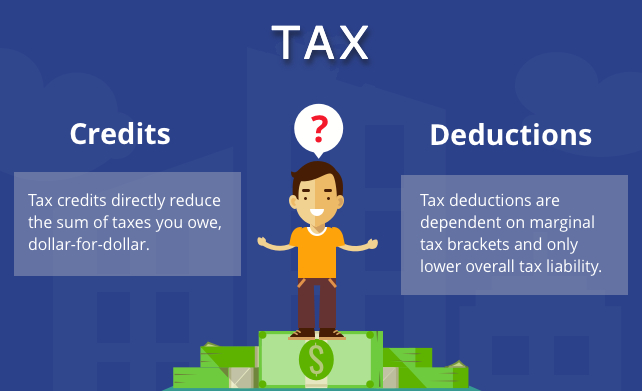Posted December 29, 2023
Top 20 Tax Deductions and Credits for 2023-2024
As we approach the upcoming tax filing season, it’s crucial to be well-versed in the various tax deductions and tax credits that can help maximize your savings. To guide you through the intricacies of the tax landscape, we present a comprehensive overview of the Top 20 Tax Deductions and Credits for 2023-2024.
Explore this comprehensive guide to the top 20 tax deductions and credits for the 2023-2024 tax year:
- Child Tax Credit (CTC):
- The CTC offers a tax break for families with children under 17, subject to specific income requirements. In 2023, this credit could reach up to $2,000 per child, with $1,600 potentially refundable.
- Child and Dependent Care Credit (CDCC):
- Intended to cover a portion of day care costs, the CDCC applies to children under 13, spouses, parents unable to care for themselves, or other dependents. Typically, it covers up to 35% of $3,000 of expenses for one dependent or $6,000 for two or more.
- Student Loan Interest Deduction:
- Borrowers can deduct up to $2,500 from their taxable income for interest paid on student loans.
- American Opportunity Tax Credit (AOC):
- The AOC allows you to claim up to $2,500 for the first $2,000 spent on tuition, books, equipment, and school fees, with an additional 25% for the next $2,000.
- Earned Income Tax Credit (EITC):
- A refundable tax break for low-income taxpayers with or without children. The credit ranges from $600 to $7,430 in 2023, based on factors like the number of children and marital status.
- Adoption Credit:
- A nonrefundable credit assisting with qualified adoption costs, with a maximum of $15,950 for 2023. The credit phases out at a modified adjusted gross income (MAGI) of $279,230 or higher.
- Health Savings Account Contributions Deduction:
- Deductible contributions to Health Savings Accounts (HSAs) with tax-free withdrawals for qualified medical expenses.
- Lifetime Learning Credit:
- Claim 20% of the initial $10,000 spent on tuition and fees, up to a maximum of $2,000. This credit covers books and supplies required for coursework.
- Charitable Donation Deduction:
- Itemizers may deduct the value of charitable gifts, up to 60% of their adjusted gross income.
- Gambling Loss Deduction:
- Deduct gambling losses only up to the extent of gambling winnings.
- Medical Expenses Deduction:
- Deduct qualified, unreimbursed medical expenses exceeding 7.5% of your adjusted gross income.
- IRA Contributions Deduction:
- Deduct contributions to a traditional IRA based on coverage by a retirement plan and income.
- Deduction for State and Local Taxes:
- Deduct up to $10,000 ($5,000 if married filing separately) for a combination of property taxes and state or local income or sales taxes.
- 401(k) Contributions Deduction:
- Contribute to a traditional 401(k) directly from your paycheck, with a 2023 limit of $22,500 ($30,000 if 50 or older).
- Mortgage Interest Deduction:
- Reduces federal income tax for qualifying homeowners by the amount of mortgage interest paid.
- Home Office Deduction:
- If you use part of your home exclusively for business, you can deduct associated expenses like rent, utilities, and repairs.
- Solar Tax Credit:
- The solar tax credit offers up to 30% of the installation cost of solar energy systems.
- Saver’s Credit:
- Earn a credit of 10% to 50% on up to $2,000 ($4,000 if filing jointly) in contributions to retirement plans.
- Self-Employment Expenses Deduction:
- Freelancers and self-employed individuals can benefit from various tax write-offs.
- Educator Expenses Deduction:
- Eligible educators can deduct up to $300 for classroom supplies, with a joint deduction of $600 for educator spouses.
Bonus: Electric Vehicle Tax Credit
Nonrefundable tax credits ranging from $3,750 to $7,500 for tax year 2023, with additional credits for used electric vehicles, subject to eligibility criteria.
Wrapping Up
In conclusion, navigating the intricacies of tax season can be a daunting task, but being well-informed about available deductions and credits can significantly ease the process. As you prepare for the 2023-2024 tax filing season, consider the diverse range of opportunities outlined above to maximize your savings. Whether you’re a parent benefiting from child-related credits, a student seeking educational incentives, a homeowner exploring mortgage deductions, or someone interested in sustainable energy with the solar tax credit, there are numerous ways to optimize your financial position. Stay vigilant, consult with tax professionals if needed, and make the most of these Valuable Tax Breaks to ensure a smoother and more financially advantageous tax season.
BNA CPAs & Advisors – Your Partner in Financial Success
At BNA CPAs & Advisors and BNA Wealth your financial success takes precedence in our mission. Count on our expertise, implement these tips, and embark on a path toward financial triumph in the coming year. As you place your financial journey in our hands, we eagerly look forward to assisting you in achieving your goals. Here’s to a prosperous and financially astute 2024!
 Back to All Posts
Back to All Posts



